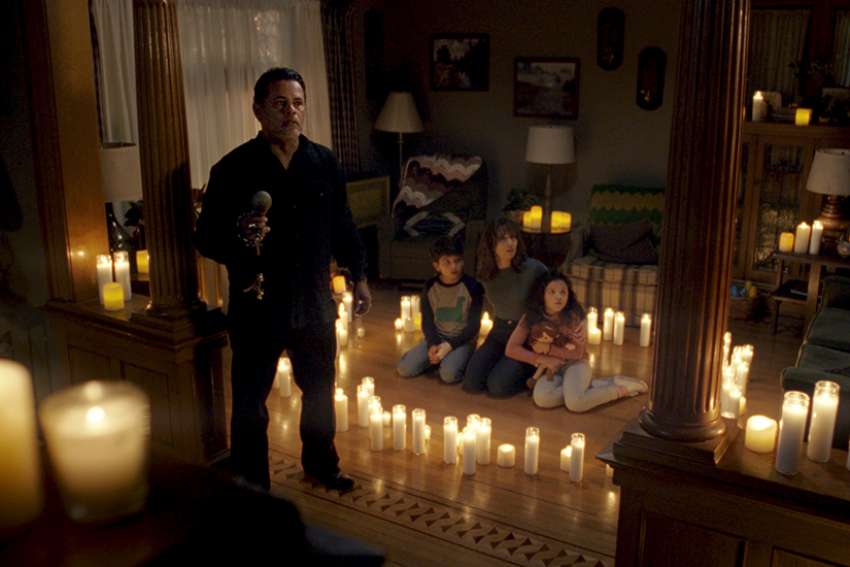It was a tad eerie being there in the descending dark surrounded by nothing but empty seats waiting for a horror film to begin. The feeling lifted only a smidgen when a handful of popcorn bucket-bearing stragglers showed up at the last minute. Nor was there much comfort in knowing the rest of the world was close at hand, crammed into at least six adjacent auditoriums watching Avengers: Endgame.
As it turned out, Michael Chavez’s feature directorial debut was more puzzling than heart-pounding. La Llorona derives from a Mexican folktale about a scorned 17th-century wife who drowns her own children, then stalks the Earth in full wedding dress regalia killing other children to avenge her loss. Naturally, her travels bring her 300 years later to 1973 Los Angeles where life, as they say, is just one spoiler alert after another.
The film’s problem, Richard Brody wrote astutely in his New Yorker review of the film, “lies with the (horror) genre” itself. Horror has become so scripturally mummified that even the best elements of a well-crafted tale are “pinned to a framework that collapses at the slightest touch.” The Curse of La Llorona has everything necessary for letting us witness a fear so profound it becomes a window on faith. Despite Chavez’s clever efforts with his camera, alas, it relapses into programmatic litany of mysteriously slammed doors, inexplicably creaking floorboards and rudely whistling winds.
Its centre is not the human heart but a yellow-eyed apparition — the “weeping woman” of the title — who shows up in reflections, and in person, looking like a cross between Dickens’ Miss Havisham and Euripides’ Medea on a really bad hair day. Her crossness, or rather the movie’s failure to make dramatic use of the cross, is where all goes wrong.
Predictably, the cross in La Llorona is condemned to the cliché of a garden-variety prop waved like a hyper-powered magic wand during periods of peak frenzy. The waver-in-chief is an ex-priest and born-again shaman — what else? — named Rafael. In the role, actor Raymond Cruz manages to look nothing like an archangel of healing. On the contrary, he looks an awful lot like a Hispanic variation on infamous alcoholic L.A. poet Charles Bukowski recovering from a historic head-splitting hangover.
On a night torn mad with footsteps by La Llorona’s over-the-top attempts to murder cinematically adorable siblings, the hour should have been nigh for the Rafael to set aside his quarrels with Holy Mother Church and seek anew redemption through Christ. But no. He can offer up only frantic Latinesque mumbo jumbo to futilely ward off a very old ghost wearing a bridal veil, fingerless gloves and full-length gown.
Surrounded by the almost empty dark, the credits rolling, I asked myself how La Llorona’s director failed to imagine how someone formed as a priest might natively turn to Christ in such a crisis. What incapacity kept him from grasping the genre-shattering twist of a character overcoming the urge to out-gimmick evil, and instead turning inward to the irresistible supernatural resources of Christian spirit?
Only heading home from the Cineplex did it strike me the fault lay not with the film’s creator, but with the culture in which movies are made. It is culturally impermissible today to tell the truth that the pervasive fear surrounding us is answerable only by faith.
From daily random massacres to prophecies of climate-change catastrophes, we are moved and mobilized, horrified and paralyzed, with fear.
Nothing can protect us. Nothing can prevail over the evils of the age. Or so we’re told. It’s the culture’s big lie, looped endlessly on all our screens.
Yet the human heart, at its centre, is never alone, of course, so long as Jesus weeps. And weep He does, eternally, in love, for us and our salvation.
(Stockland is publisher of Convivium.ca and a senior fellow with Cardus.)


